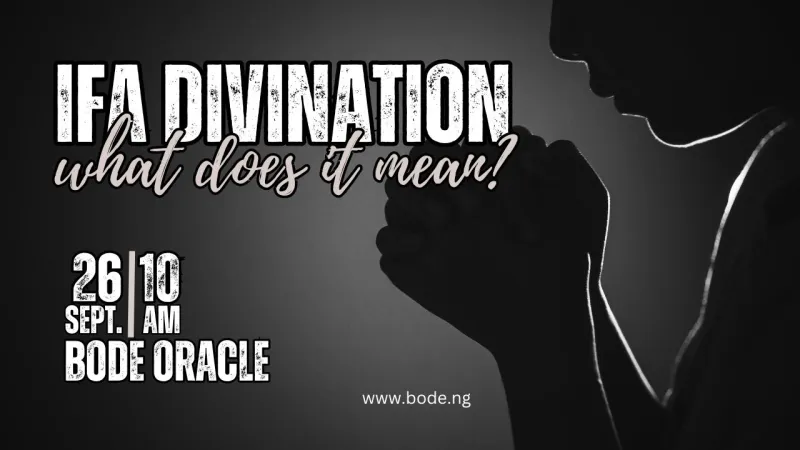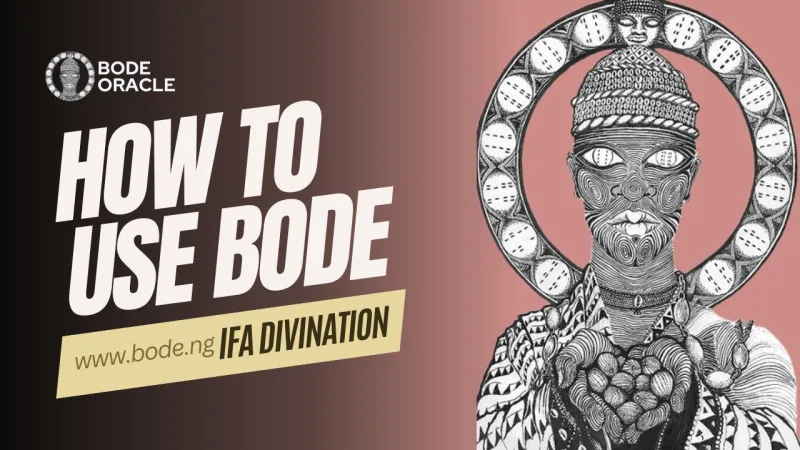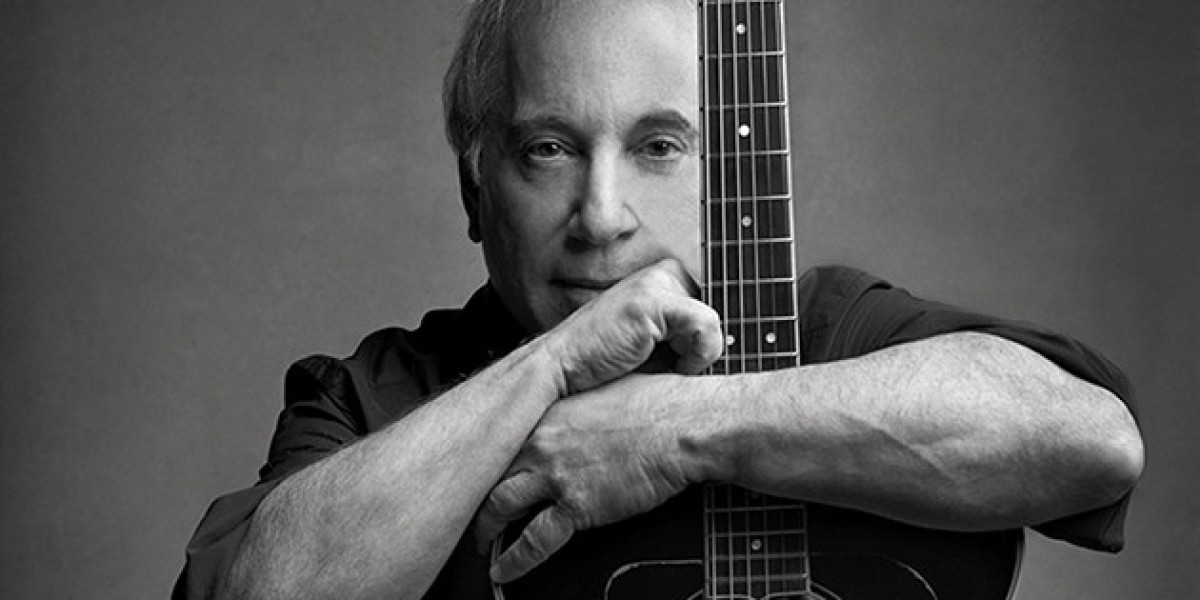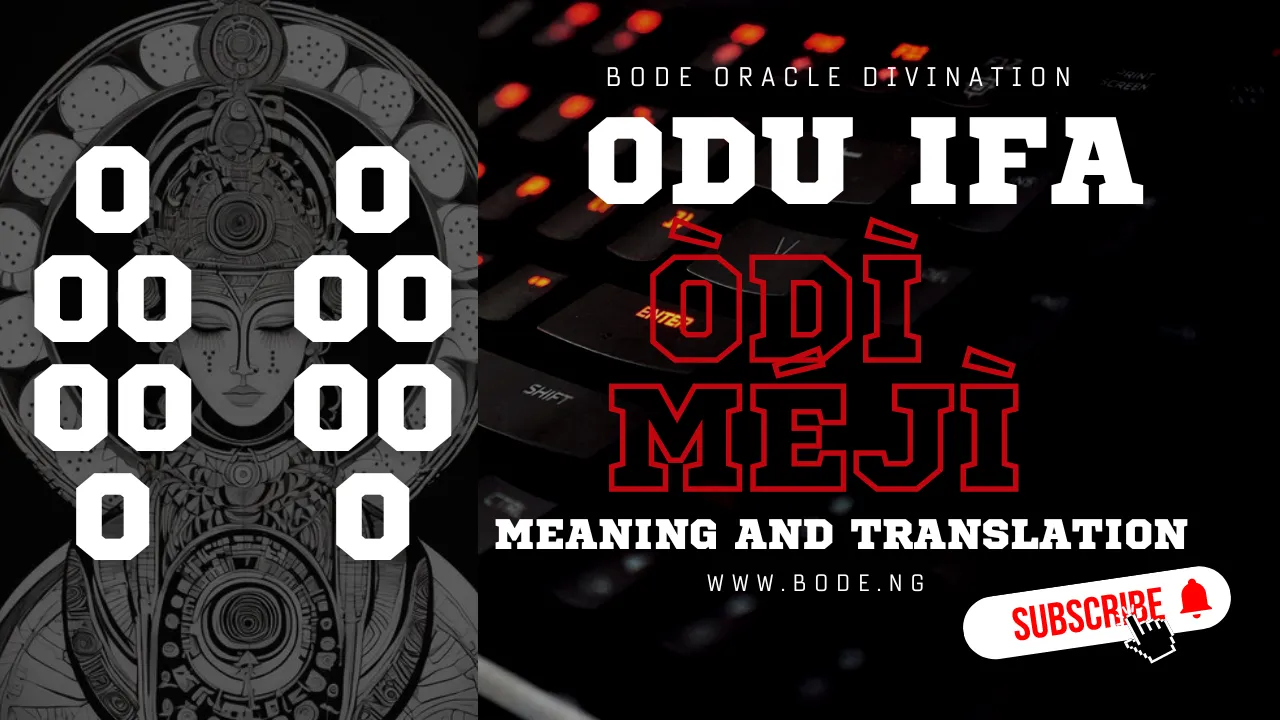Ifá, a spiritual system based on three primary components: Olodumare (the supreme creator of the universe), Orisa/Orisha (the spirits that embody the various components of all living things), and the Ancestors, is one of the defining characteristics of the Yoruba people.
The Yoruba Ifá divination has been practiced for thousands of years and is regarded as one of West Africa's longest-standing spiritual systems. Ifá, a divination system originating in Yorubaland, is essential to traditional Yoruba beliefs.
It is also practiced by West African Vodun and African diasporic, such as Cuban Santería. According to Ifá traditions, the divination method is overseen by Orunmila, an Orisha spirit thought to have handed on sacred knowledge and this wisdom to humanity.
Ifá has an initiatory tradition, with a trained individual known as a babaláwo. While Ifá divination is not frequently practiced in other African cultures, it is extremely important to the Yoruba people since it provides wisdom, love, and moral advice.
It differs from Western or Asian ideas by providing its own distinct perspective. Ifá divination is a complex and important aspect of Yoruba culture.
It is brought to life by the babaláwo and Iyanifa, a figure well-versed in the mysteries of the unseen—an intellectual with a deep respect for nature, knowledge of healing herbs, and an understanding of rural life.
To completely comprehend Yoruba culture, Ifá divination, as well as the concept of ori (personal destiny or inner self), must be acknowledged.
You can also read more on Odu Ifa and Yoruba Spirituality here.
The Ifa Concept of Consciousness
Ori in Yoruba refers to the vessel capable of processing conscious thought. According to Ifá, ori represents the integration of both thoughts and emotions.
When an Ifá elder advises someone to think clearly, they often gesture toward the heart rather than the head, highlighting the union of emotion with reason. This combination leads to ori ire—or wisdom.
A common Ifá saying, Ologbon a d'omugo l'ai l'ogbon-inu, translates to "a person who does not use their wisdom becomes a fool," emphasizing the importance of emotional intelligence in making sound decisions.
Ifá explains that ori operates through four distinct realms of perception: internal reflection (processing personal emotions and identity), evaluating relationships (trust and empathy), accessing memory (recalling past experiences), and imagining future possibilities.
These modes of consciousness are symbolized by a circle divided into four quadrants, known in comparative religion as a mandala, representing the self and inner experience.
In Ifá, this mandala is reflected in the circular divination tray, Opon Ifa or through other means such as Opele and Cowries. This quartered circle is a universal symbol of self, seen in traditions worldwide—from Hopi sand paintings to Tibetan healing circles, Islamic temple art, Gothic stained glass, and, of course, the sacred markings of Ifá known as Odu Ifa.
Throughout the day, the mind swiftly navigates through these quadrants to process new information. For instance, when encountering a new experience, we assess how it feels, recall similar emotions from the past, reflect on how it affects our relationships, and envision the impact it might have on future events.
A saying in Ifá, Orisirisi eda to wo le lale, yato si eda tojade lowuro, meaning "the person who returns at sundown is different from the one who left in the morning," suggests that each day brings spiritual growth.
Following a spiritual path implies using specific practices to integrate new experiences and wisdom. Symbolically, we expand our circle of personal experience, just like widening the circumference of a calabash.
In Ifá, many practices that train ori are passed down as behavioral codes, cultural expectations, and participation in rituals that unveil the mysteries of transcendent symbols. Unlike other traditions, Ifá has no formal monasteries or universities.
Instead, the extended family serves as the Ifá School, where each member plays a role as a mentor and teacher for the younger generations, passing on the wisdom and knowledge of Orunmila.
Are you curious to know more about Ogbe Iwori and the spiritual meaning? Check out our detailed explanation on Ogbe Iwori and its spiritual meaning.
The Ifa Concept of the Inner Self
Ori represents the profound mystery of consciousness, while ori-inu—the inner head or self—embodies a mystery within that mystery.
It is the unseen self within, often described in Yoruba teachings as the "self that dances in front of the mat." In this analogy, the mat symbolizes the unity of all creation.
Ifá reveals that even when we have reached the core of our consciousness, there remains a deeper, more elusive inner layer, which serves as the source of all knowing but remains unknowable itself.
One of the key aims of Ifá and Orisha initiations is to reveal this ori-inu to the ori—to make the inner self known to the conscious self. This process is symbolized by the illumination of Osun, the deity of beauty and fertility.
A reflection of this concept can be found in the tradition that forbids newly initiated iyawo (initiates) from looking into mirrors, as seeing oneself fully before this inner self is understood can lead to an imbalance or confusion until the individual has accessed this deeper self.
The ancient sages of Ifá conducted an in-depth exploration of the elements that form the complete self, distinguishing various components that combine to create ori-inu.
These include Atari (the crown of the head), ipako (the back of the head), apari-inu (the inner essence), ori-apeere (the archetypal head), Alunleyan (the choice of destiny), Akunlegba (the guiding force), and Ayanmo (fate).
Understanding these aspects and their functions offers insight into how individual consciousness is connected to the broader spiritual consciousness.



